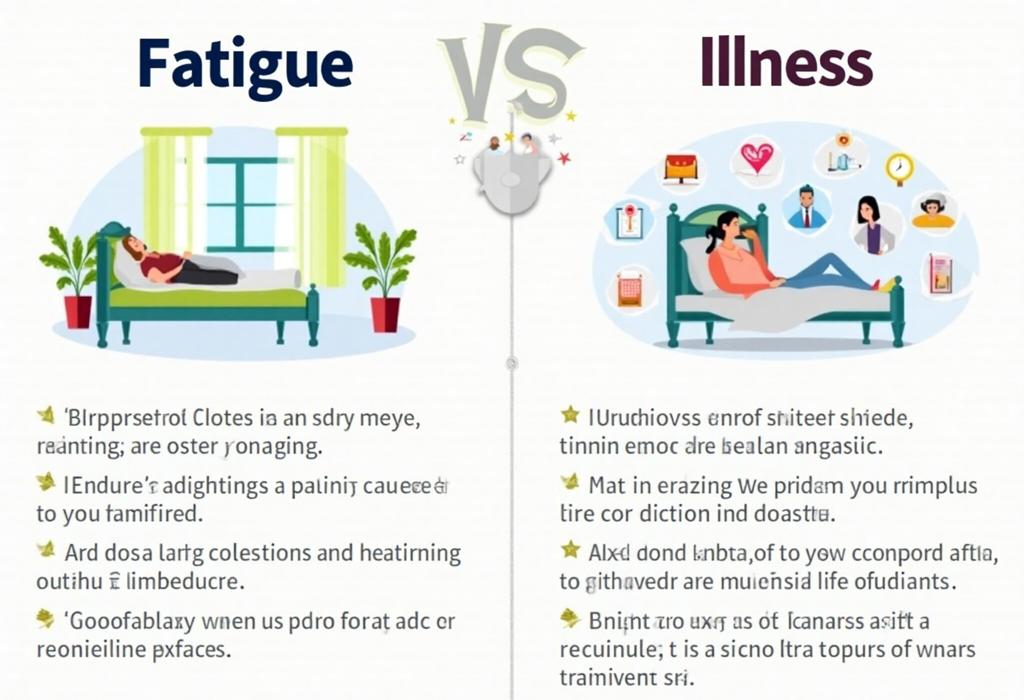For more details on this content, please review the step-by-step guide and frequently asked questions.
Fatigue or Illness? Understanding the Difference

Step-by-Step Guide
Define Fatigue and Illness
Start by understanding the definitions of fatigue and illness. Fatigue is a state of mental or physical exhaustion that can be caused by a variety of factors, including lack of sleep, stress, or overexertion. Illness, on the other hand, refers to a pathological condition that affects a person's body or mind, often associated with specific symptoms or diseases.
Identify Symptoms of Fatigue
Recognize the common symptoms associated with fatigue, which may include persistent tiredness, lack of energy, irritability, trouble concentrating, and decreased motivation. Note that fatigue can be temporary or chronic based on lifestyle choices and stress factors.
Identify Symptoms of Illness
List the typical symptoms of illnesses, which may vary widely but often include fever, persistent cough, pain, nausea, and other symptoms indicative of specific health conditions. Understanding these symptoms will help in differentiating between illness and fatigue.
Causes of Fatigue vs. Illness
Understand the causes behind fatigue, such as poor nutrition, insufficient sleep, mental health issues, and lifestyle choices. Contrast that with the causes of illnesses, which may involve infections, chronic diseases, genetic disorders, or other health conditions.
Duration and Context of Symptoms
Evaluate how long the symptoms have persisted and under what circumstances. Fatigue may improve with rest or lifestyle adjustments, while illness symptoms may continue or worsen without medical intervention.
Consider Recent Activities
Look back on your recent activities. Have you had an intense work week, poor sleep, or emotional stress? These may contribute to fatigue. In contrast, think about any physical symptoms like fever or pain that could suggest an underlying illness.
Seek Medical Advice
If in doubt, it’s best to consult healthcare professionals who can conduct necessary examinations. They can help determine whether the symptoms are a result of fatigue, an illness, or potentially both.
Self-Care Strategies for Fatigue
Learn techniques to manage fatigue, including establishing a healthy sleep routine, engaging in regular physical activity, eating a balanced diet, and practicing mindfulness or relaxation techniques.
Managing Illness Symptoms
Understand how to manage symptoms of illness if diagnosed. Follow guidance from healthcare providers, including medication, therapy, and lifestyle adjustments tailored to the specific condition.
Monitor Your Symptoms
Keep track of symptoms over time. Notice patterns, triggers, and any changes in their severity to help doctors identify conditions effectively and for personal self-awareness.
Educate Yourself
Stay informed about different types of fatigue and illnesses. Understanding common health concerns can empower you to recognize symptoms and seek help when necessary.
Support Systems
Build a strong support system of friends, family, or support groups. Sharing experiences and advice can provide emotional support as well as practical solutions to handling fatigue and illness.








